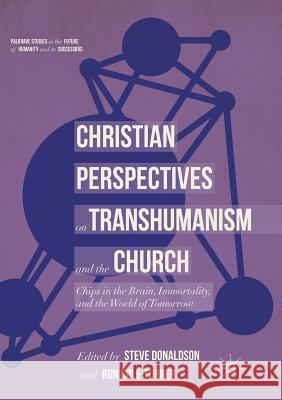Christian Perspectives on Transhumanism and the Church: Chips in the Brain, Immortality, and the World of Tomorrow » książka
topmenu
Christian Perspectives on Transhumanism and the Church: Chips in the Brain, Immortality, and the World of Tomorrow
ISBN-13: 9783030079901 / Angielski / Miękka / 2019 / 271 str.
Christian Perspectives on Transhumanism and the Church: Chips in the Brain, Immortality, and the World of Tomorrow
ISBN-13: 9783030079901 / Angielski / Miękka / 2019 / 271 str.
cena 605,23 zł
(netto: 576,41 VAT: 5%)
Najniższa cena z 30 dni: 578,30 zł
(netto: 576,41 VAT: 5%)
Najniższa cena z 30 dni: 578,30 zł
Termin realizacji zamówienia:
ok. 22 dni roboczych
Bez gwarancji dostawy przed świętami
ok. 22 dni roboczych
Bez gwarancji dostawy przed świętami
Darmowa dostawa!
Kategorie:
Kategorie BISAC:
Wydawca:
Palgrave MacMillan
Seria wydawnicza:
Język:
Angielski
ISBN-13:
9783030079901
Rok wydania:
2019
Wydanie:
Softcover Repri
Numer serii:
000766210
Ilość stron:
271
Waga:
0.34 kg
Wymiary:
21.01 x 14.81 x 1.52
Oprawa:
Miękka
Wolumenów:
01
Dodatkowe informacje:
Wydanie ilustrowane











